The PALS (Pediatric Advanced Life Support) algorithms serve as structured protocols for managing critical pediatric scenarios like cardiac arrest, respiratory distress, and shock. They detail essential interventions and medications specific to pediatric physiology which aim to optimize outcomes by standardizing care delivery for healthcare providers in emergency pediatric settings. The PALS algorithm also aids in guiding the management of other pediatric emergencies such as severe allergic reactions, choking, and trauma situations. They provide a systematic approach for healthcare providers to deliver timely and appropriate care.
All PALS Algorithms
Enroll in our PALS online certification course today and take advantage of our competitive pricing.
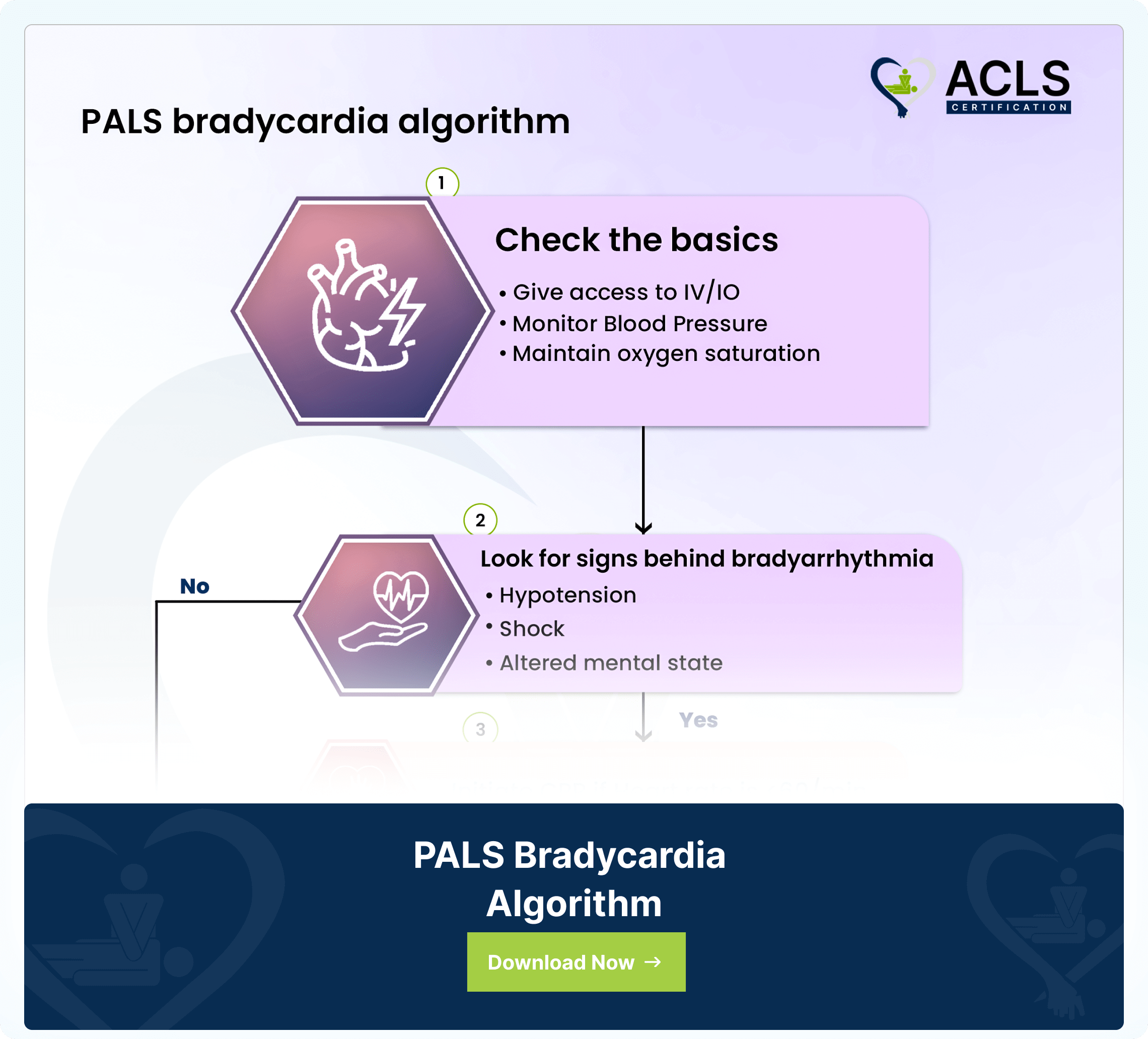
PALS Bradycardia Algorithm
The Pediatric Advanced Life Support (PALS) Bradycardia Algorithm gives a systematic approach to managing slow heart rates
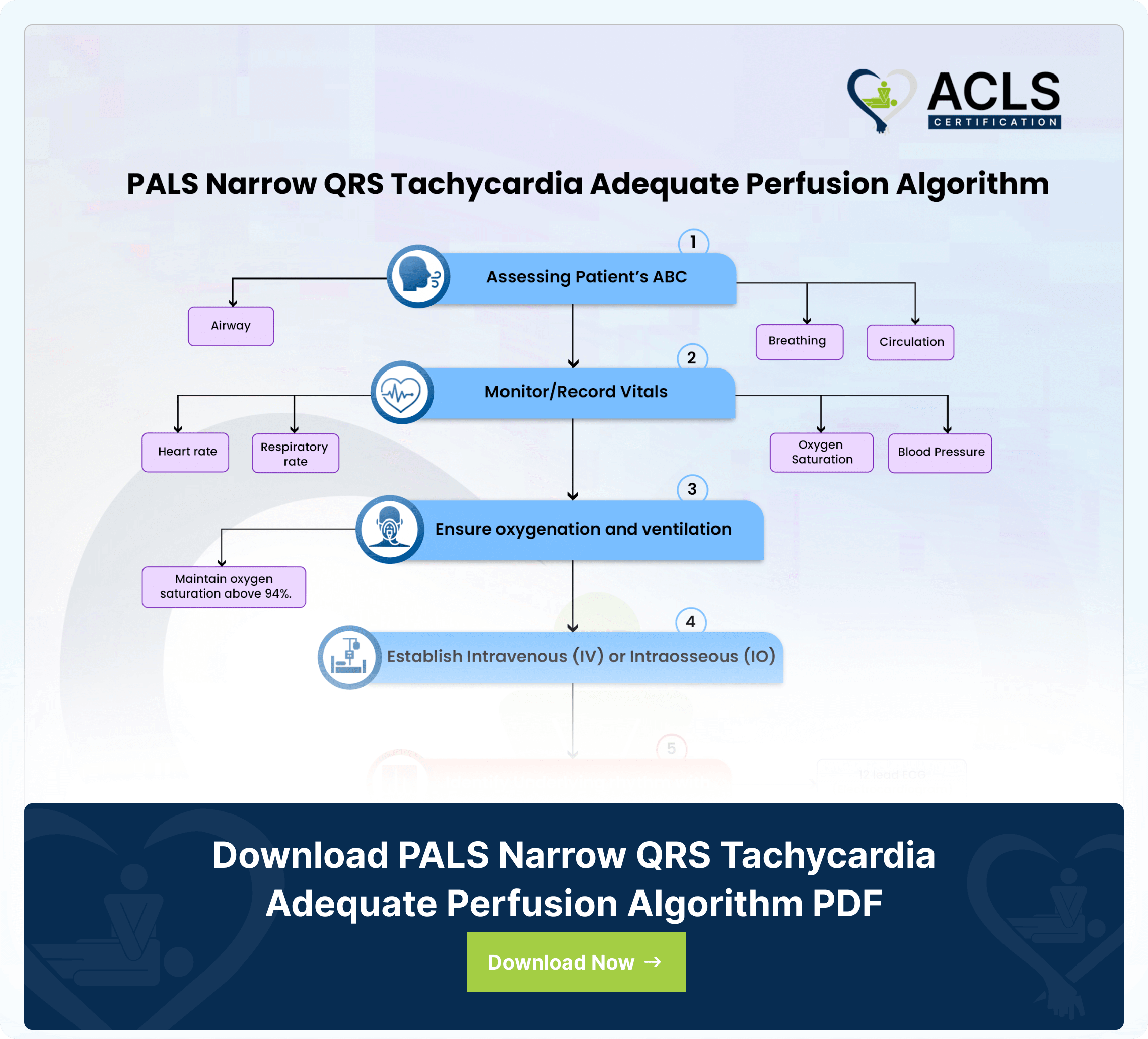
PALS Narrow QRS Tachycardia Adequate Perfusion Algorithm
The PALS Narrow QRS Tachycardia Adequate Perfusion Algorithm gives a structural approach for managing pediatric cardiac emergencies. The algorithm ensures effective treatment to maintain adequate perfusion in pediatric patients.
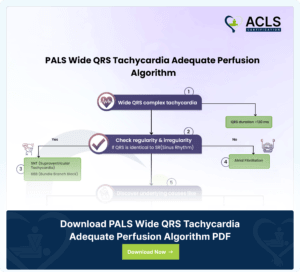
PALS Wide QRS Tachycardia Adequate Perfusion Algorithm
PALS Wide QRS Tachycardia Algorithm addresses critical pediatric cardiac conditions in an extremely systematic way. The flowchart helps medical professionals manage emergencies to ensure adequate perfusion in patients.
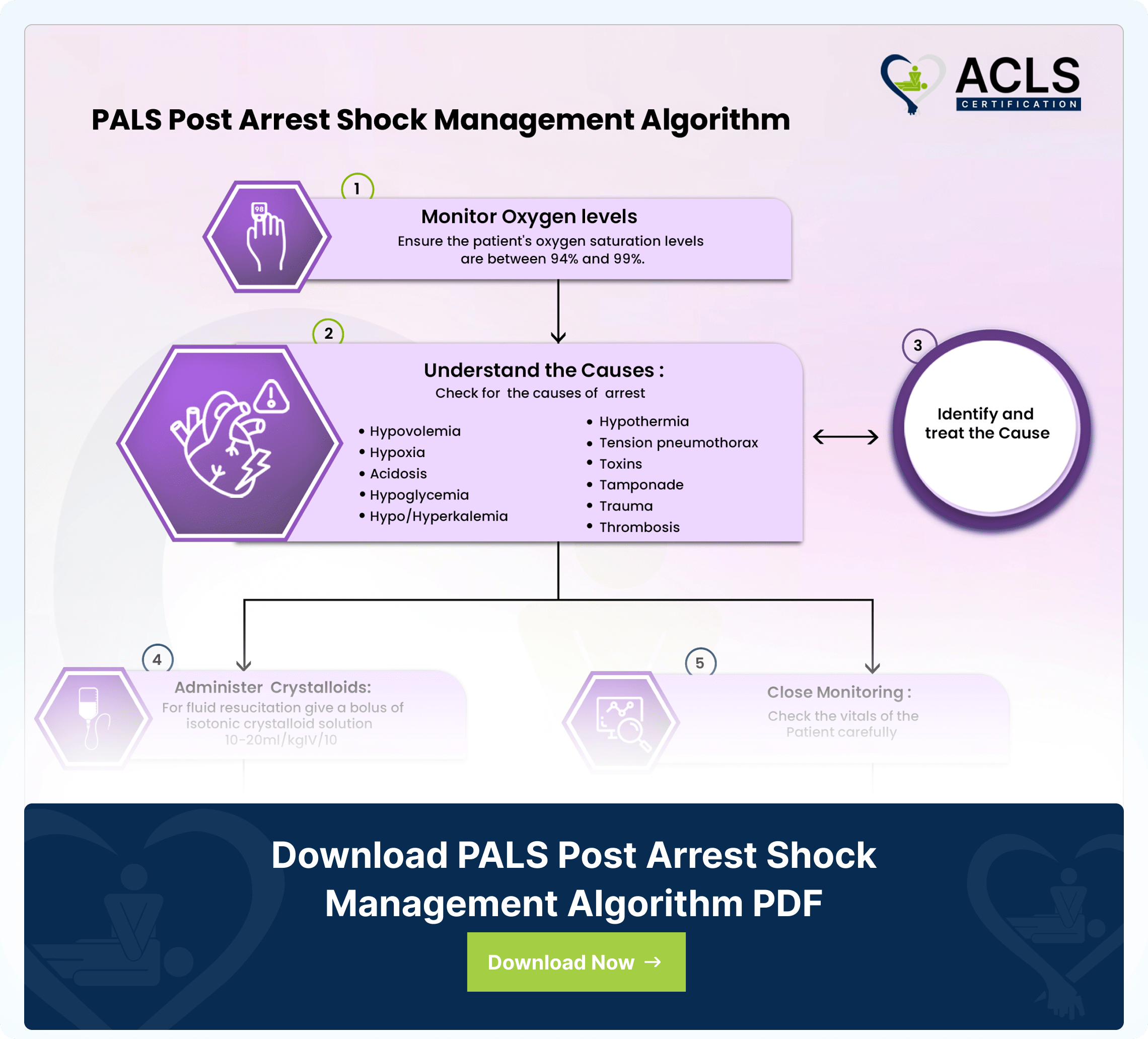
PALS Post Arrest Shock Management Algorithm
The PALS Algorithm Stabilizes pediatric patients’ post-cardiac arrest optimizing recovery through targeted interventions

PALS Cardiac Arrest Algorithm
The PALS (Pediatric Advanced Life Support) algorithm is a standardized set of guidelines utilized in emergency medicine to address pediatric cardiac arrest situations.
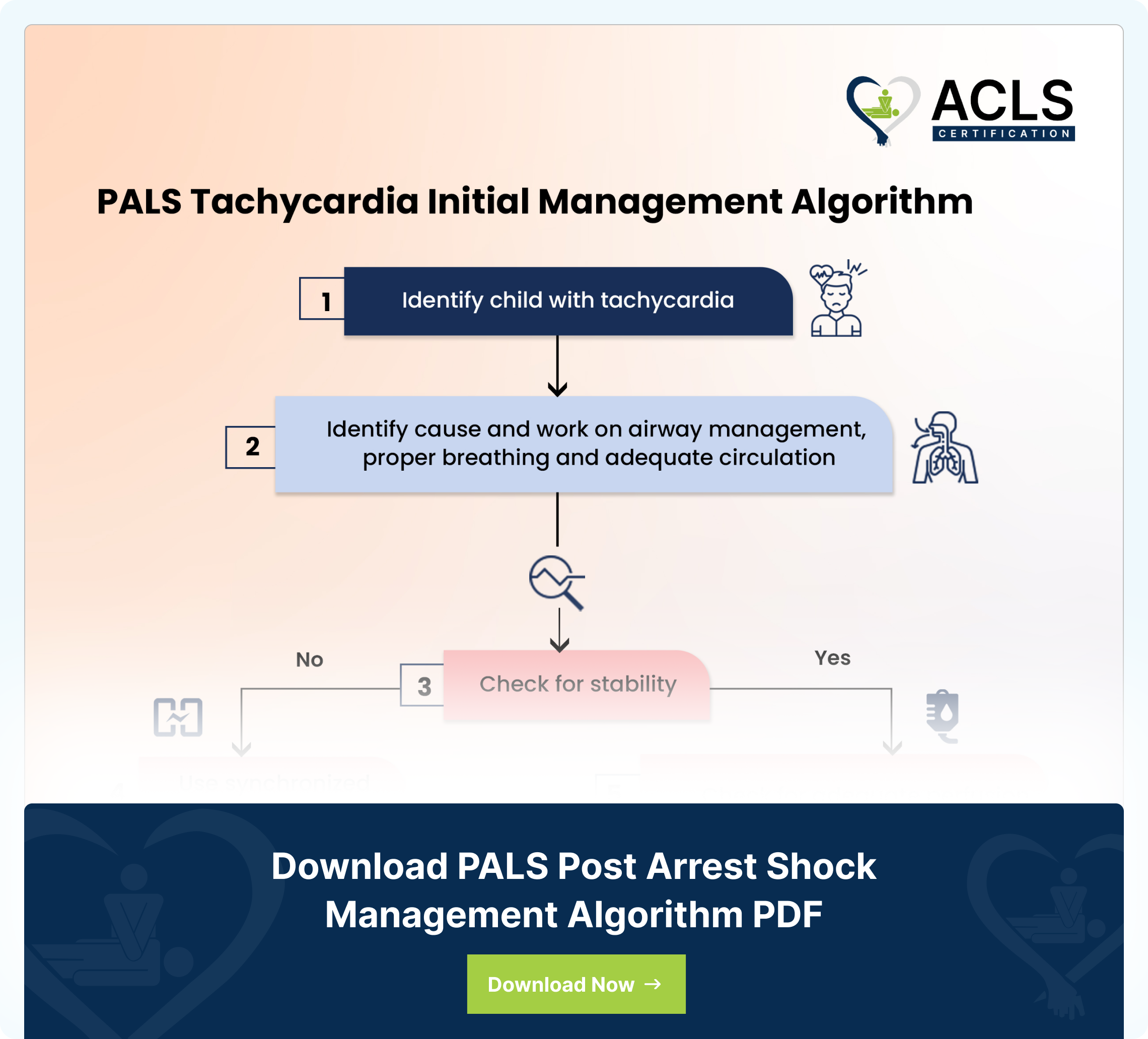
PALS Tachycardia Initial Management Algorithm
The PALS Tachycardia Initial Management Algorithm offers a structured approach for precisely diagnosing and treating pediatric tachycardia rhythms.
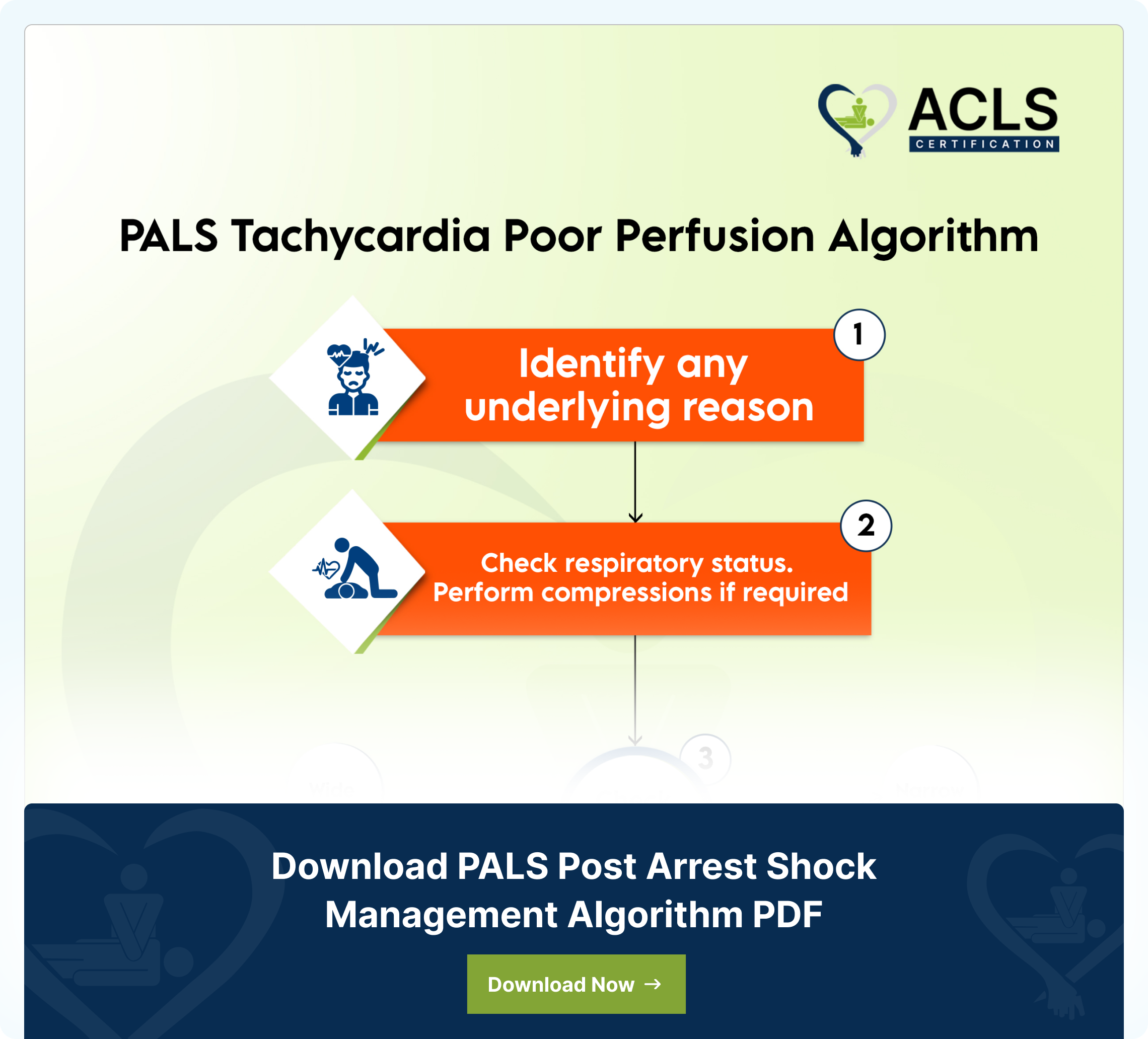
PALS Tachycardia Poor Perfusion Algorithm
The PALS Tachycardia Poor Perfusion Algorithm provides guidance for managing fast heartbeats and signs of poor blood flow in pediatric patients.
Why are PALS algorithms essential?
PALS algorithms are indispensable tools that are tailored for healthcare professionals in order to respond to pediatric emergencies. They ensure competency in addressing critical medical situations involving children, with cardiac arrest algorithms serving as crucial guides. The algorithms highlight the importance of precision, prompt action, and a sense of unwavering commitment that guides healthcare providers along the path to pediatric patient recovery.
Available Courses
ACLS Certification and Recertification
Advanced Cardiovascular Life Support
- 4.0 – 8.0 CE Credit Hours
- 100% Online Accepted Course. Instant card download
- Includes Videos, Megacode Scenarios, Practice Tests & More
- Free BLS course with ACLS course
PALS Certification and Recertification
Pediatric Advanced Life Support
- 4.0 – 8.0 CE Credit Hours
- 100% Online Accepted Course. Instant card download
- Includes Videos, Megacode Scenarios, Practice Tests & More
- Free BLS course with ACLS course
BLS Certification and Recertification
Basic Life Support- CPR & First Aid
- 6.0 CE Credit Hours
- 100% Online Accepted Course. Instant card download
- Includes CPR & First Aid
- Bag-Mask Techniques
- Updated Guidelines


